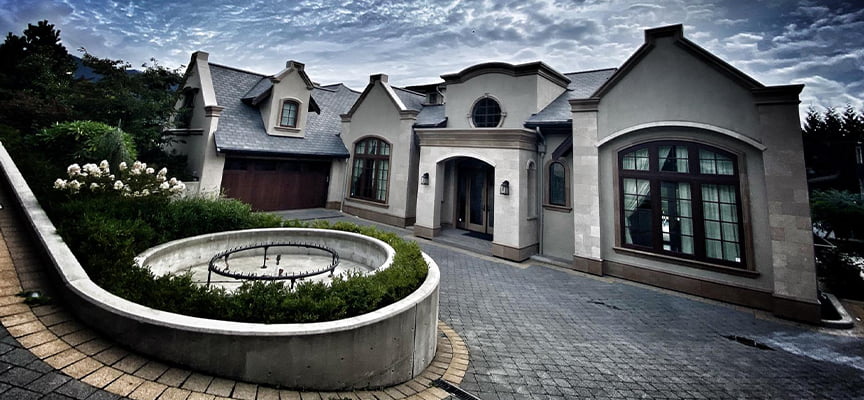
In the rapidly evolving construction industry, the role of a professional construction contractor has never been more crucial.
From planning and executing projects to ensuring safety and compliance, professional construction contractors are at the heart of modern building projects. Their expertise, experience, and dedication are essential for delivering quality results on time and within budget.
This blog explores the multifaceted role of a certified construction contractor, highlighting their importance in contemporary construction.
Planning And Project Management
Initial Planning And Design
A professional construction contractor is involved from the project’s inception, collaborating with architects and engineers to develop comprehensive plans and designs.
They ensure the design is feasible, cost-effective, and aligned with the client’s vision. This stage involves meticulous planning to anticipate potential challenges and devise strategies to overcome them.
Project Scheduling
Once the initial planning is complete, the contractor develops a detailed project schedule. This schedule outlines each phase of the construction process and sets realistic timelines and milestones.
Effective scheduling ensures the project progresses smoothly, avoiding delays and cost overruns.
Budgeting And Cost Management
Accurate Cost Estimation
Professional construction contractors are responsible for providing accurate cost estimates for the project. They consider various factors such as material costs, labour, equipment, and potential contingencies.
Accurate budgeting is crucial for securing financing and ensuring the project remains financially viable.
Cost Control
Throughout the construction process, contractors closely monitor expenses to ensure the project stays within budget. They implement cost control measures, such as regular financial reporting and variance analysis, to identify and address any deviations from the budget.
Procurement And Resource Management
Sourcing Materials And Equipment
Procuring high-quality materials and equipment is a crucial responsibility of professional construction contractors. They leverage their industry connections and negotiating skills to secure the best deals, ensuring the project uses durable and reliable materials.
Managing Labour And Subcontractors
Contractors also oversee the hiring and management of skilled labour and subcontractors. They ensure that all workers are qualified and adhere to safety standards. Effective labour management is critical for maintaining productivity and meeting project deadlines.
Ensuring Safety And Compliance
Adhering To Safety Standards
Safety is a top priority in any construction project. Professional construction contractors implement comprehensive safety protocols to protect workers and prevent accidents. They conduct regular safety training sessions and enforce strict adherence to safety regulations.
Regulatory Compliance
Construction projects must comply with various local, state, and federal regulations. Contractors are responsible for ensuring that all aspects of the project meet these legal requirements.
This includes obtaining necessary permits, conducting inspections, and adhering to building codes.
Quality Control And Assurance
Maintaining Quality Standards
A professional construction contractor is committed to delivering high-quality results. They implement rigorous quality control measures, such as regular inspections and testing, to ensure that all work meets the required standards.
Quality assurance is vital for the long-term success and durability of the project.
Addressing Deficiencies
If any deficiencies or issues are identified during the construction process, the contractor promptly addresses them. This proactive approach minimizes the risk of costly repairs or rework after the project is completed.
Communication And Coordination
Stakeholder Communication
Effective communication is essential for the success of any construction project. Professional construction contractors are the primary point of contact between the client, architects, engineers, and other stakeholders.
They facilitate clear and open communication to ensure everyone is aligned with the project goals.
Coordinating Activities
Contractors are responsible for coordinating all construction activities, ensuring that each project phase progresses smoothly. This involves scheduling tasks, managing logistics, and resolving any issues that arise during construction.
Risk Management
Identifying And Mitigating Risks
Construction projects are inherently risky, with potential challenges ranging from weather delays to unforeseen site conditions. Professional construction contractors are skilled in identifying potential risks and developing mitigation strategies.
They conduct thorough risk assessments and implement contingency plans to address any issues that may arise.
Insurance And Liability
Contractors also manage insurance and liability issues, ensuring that the project is adequately covered in case of accidents or damages. This gives clients peace of mind, knowing they are protected from potential financial losses.
Leveraging Technology
Utilizing Construction Management Software
Technology plays a significant role in construction management in the digital age. Professional construction contractors leverage advanced software tools for project planning, scheduling, and monitoring.
These tools enhance efficiency and accuracy, enabling contractors to manage projects more effectively.
Implementing Innovative Techniques
To improve project outcomes, contractors also adopt innovative construction techniques, such as prefabrication and modular construction. These methods can reduce construction time, lower costs, and enhance overall quality.
Environmental Sustainability
Green Building Practices
Sustainability is becoming increasingly important in the construction industry. Professional construction contractors incorporate green building practices into their projects, such as using eco-friendly materials and implementing energy-efficient designs.
These practices reduce the environmental impact of construction and promote long-term sustainability.
Compliance With Environmental Regulations
Contractors also ensure compliance with environmental regulations, such as waste management and pollution control.
They implement measures to minimize the project’s environmental footprint, contributing to a healthier and more sustainable future.
Conclusion
In conclusion, the role of a professional construction contractor is integral to the success of modern building projects. Their expertise in planning, budgeting, procurement, safety, quality control, communication, and risk management ensures that projects are completed efficiently and to the highest standards.
As the construction industry continues to evolve, the importance of professional construction contractors in delivering safe, sustainable, and high-quality buildings cannot be overstated.
About Us
At Eurobuild Construction, we pride ourselves on being a leading professional construction contractor committed to excellence. With years of experience and a dedicated team of experts, we deliver top-quality construction projects that meet and exceed our clients’ expectations. Our focus on safety, innovation, and sustainability sets us apart in the industry. Learn more about us or contact us today for more information.

